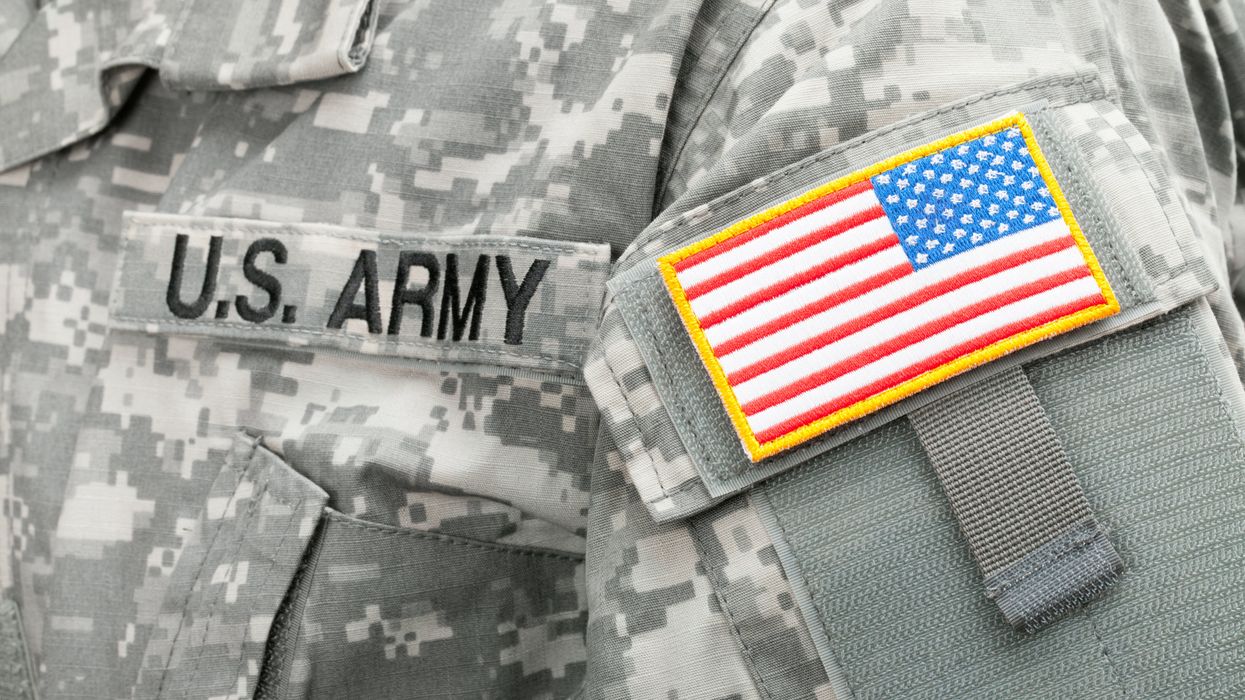A few weeks ago, I wrote about why veterans are some of the most well-prepared Americans to lead our country’s fight for unity. At a time when America is more divided than we’ve been since the Civil War — with political violence on the rise and families torn apart by political debate — we desperately need the skills of veterans. These selfless individuals are trained to build trust, foster dialogue and negotiate peace.
Thankfully, some veterans have already taken up that torch. Ben Bain is one such example.
Bain spent three and a half years in the U.S. Army, including a tour in Afghanistan. During his service, he worked in rural villages, structuring conversations and peace negotiations between the Afghan national police, Afghan national army leaders and local villagers.
That ability to cultivate trust was bolstered by Bain’s personal interactions in the U.S. Army — an organization that he describes as “one of the last true melting pots of American society.” Indeed, for decades, people from different racial and ethnic backgrounds, religions and geographies have come together toward a common goal: defending America and the freedoms we hold dear.
“It doesn't matter where you come from, what you look like, or what you believe. In the military you're all working together towards something — in many cases literally life or death stakes — which is a powerful way to build group cohesion,” Bain explained.
Unfortunately, upon returning to civilian life, he didn’t feel that same sense of understanding. He saw a deep-rooted division.
The source of this division is often a dearth of diversity of thought in our everyday experiences, according to Bain. Many of us have surface-level interactions at work or school — but how often are we really engaging in meaningful conversations with people of differing identities or opinions? When do we really have to compromise with — or even listen to — the “other side”?
Technology often amplifies these conflicts. “You get a customized news feed, whether that's political news or sports news — it doesn't matter. You get only what you care about. You can join chat groups and connect with people anywhere around the world who think just like you instead of being forced to engage with people who don't think just like you,” Bain said.
In other words, we’re not a divided nation because our opinions are irreparably different from one another. We’re a divided nation, in part, because we simply don’t come into contact with or hear from dissenting voices. And, when we do hear from these voices, they’re often select soundbites — curated specifically to stoke division.
That’s why when Bain decided to rebuild unity in his local community, he knew he had to bring people together, in-person, to structure honest conversations. In 2022, he began volunteering with +More Perfect Union, founding the organization’s Washington, D.C., Brickyard (or local chapter).
In this role, Bain fosters dialogue among people from diverse backgrounds across the community. His secret? Don’t strive for consensus — strive for listening and understanding.
Sometimes, these gatherings feature a guest speaker. Other times, they involve hyper-local volunteer opportunities, such as cleaning up local parks.
“Service can help build trust. When you do a service project together, you’re working towards a common goal, addressing local needs at the same time, and you start to develop this trust and collective identity,” he said.
Regardless of the activity, the goal remains the same: giving people the chance to share their experiences and connect over shared values. No screaming matches, no debates, just real dialogue.
While it may seem difficult for some to facilitate these conversations, for Bain, it felt natural. Coming from a military background, he has been trained to identify common ground between two opposing sides and open the door to productive discussion — whether that was between Afghan villagers and national army leaders, or within his own unit, collaborating with people from diverse backgrounds in the Army’s melting pot.
While it is often difficult to measure the impact of this work, Bain finds that it seems to be making a difference for the folks in his community. “Despite coming from different backgrounds, everybody feels that it is a psychologically safe space. They are willing to engage and open up about things that I don't think they were anticipating coming in to share.”
He continued, “They walk away with a sense of ‘not everything is doom and gloom in the world – not everybody is just yelling at each other.’ There are meaningful ways to engage and you just need those opportunities to be structured right now because they don't come naturally.”
In addition to his volunteer work with +More Perfect Union, Ben also works as the director for state capacity at the Niskanen Center, where he focuses on ways to help the government improve its ability to effectively implement its policies. He researches and advocates for reforms that will allow the government to hire and keep the right people, reduce procedural burdens that slow service delivery and make data-driven decisions with faster feedback loops.
So, what can we learn from Bain’s leadership?
Oftentimes, building unity in such a siloed society seems like an insurmountable task. But, at the end of the day, as Bain borrows from Civity, a nonprofit focused on building relationships, “conversation is action.” We don’t need to compromise our values or force people of differing opinions to “convert” to a specific way of thinking.
All we need to do is listen and remain open to seeing the humanity in others’ perspectives.
Harriman is CEO and co-founder of +More Perfect Union.




















